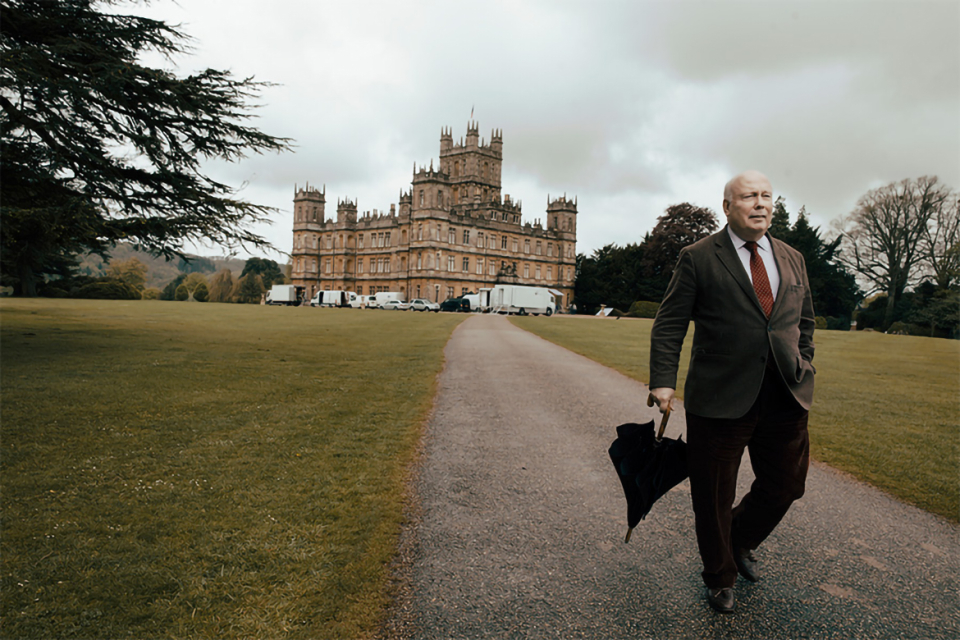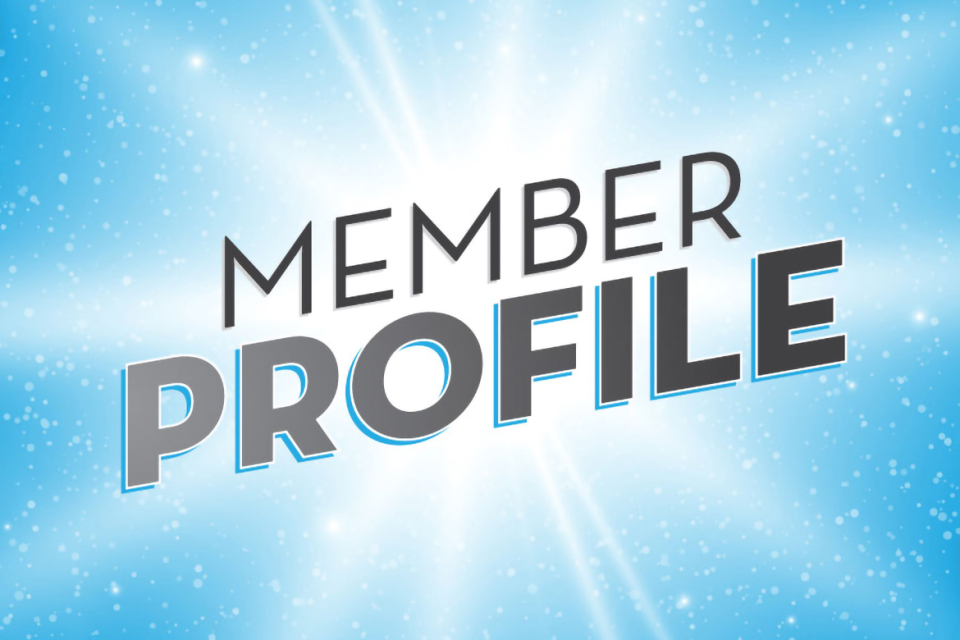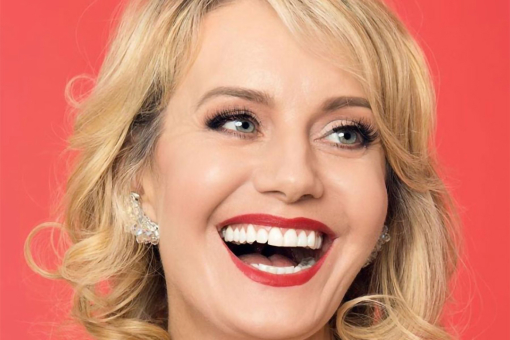On the hit series Downton Abbey, when Countess Violet (Dame Maggie Smith) delivers a killer line like, “I don’t dislike him. I just don’t like him. Which is quite different,” credit is of course due to the genius pen of show’s creator and sole writer Julian Fellowes.
But it’s also due to Julian Fellowes, actor. Even with the juggernaut that Downton Abbey has become, both in its native Britain and here in the States, audiences (especially American ones) might not realize that Fellowes started out on the other side of the camera. (Most notably as Lord Kilwillie in the BBC’s popular series, Monarch of the Glen.)
“I think being an actor - and actually it doesn’t matter terribly whether you are a marvelous actor or not - gives you a real insight into what’s sayable and isn’t sayable,” he explained in a recent phone interview. “And I think it is very, very helpful to have been an actor when I am writing dialogue.”
With Downton heading into its sixth and final season, Fellowes (who also serves as the show’s executive producer) at the time of this interview was wrapping up the writing of the last-ever episode.
He was also thinking on and reading for his new show The Gilded Age, which he will create, write and produce for NBC Universal. Add to that workload his plans to write the miniseries Doctor Thorne (to be adapted from Anthony Trollope’s novel for ITV) and writing the book for Andrew Lloyd Webber’s new musical School of Rock, which will premiere on Broadway in December 2015 (the same month that Downton’s last episode will air across the pond.)
As superhuman as his creative productivity is, Fellowes also was contemplating more mortal needs: a vacation, urged on by his son, Peregrine, and mourning the coming end of Mad Men. (The final episodes hadn’t yet aired in Britain and Fellowes, a confessed “binge-watcher” implored that we say nothing about the end.)
Those eager to learn how he does it all can look to his 20 years as an actor, which serve as motivation to say yes to many things.
“The trouble is when you’ve been an actor for 20 years it is very difficult to say no,” he said. “I do accept probably too much because, you know, I get so very interesting opportunities.”
Q: Because you do it all - you produce, you write everything, you direct - what are the challenges and the advantages of doing everything on Downton Abbey?
A: I think the main challenge is just the time. You have a limited amount of time and obviously if you’ve got six writers all working on it, that’s more realistic in a way.
But on the other hand, trying to keep it consistent, trying to make sure that the same arcs are followed, that the smaller arcs echo the bigger arcs, that the characters stay the same people inside, and all of that, obviously that’s much easier if there is only one of you doing it.
So, I think, it’s a question of weighing the swings against the round-about really. And in some ways it’s easier, although, obviously it’s a lot of work.
I think that [ensuring consistency] is the advantage. You see it sometimes on soap operas, which are written by lots of people [because episodes air so frequently] when characters suddenly become different people in certain scenes and situations. To some degree, the actors can protect you and themselves, but not, you know, to every degree. But if only one person is writing, it doesn’t happen really.
Q: At the beginning, did you have an idea of how far you wanted the show to go, and now that we’re approaching the end is it where you wanted it to end up? Or has it all been a surprise?
A: Well, the whole adventure has been surprising. I mean, you write a show and of course you hope it will be successful. I thought it had a good chance and was good and would find its audience, so I’m not being over-modest. But you don’t expect it to become a kind of global phenomenon. I think you’d have to be a kind of egomaniac [to make that] assumption.
But, as for where we are at the end, I think at one point we thought we’d finish at the end of five seasons. But as we got to the fifth season we realized we had a lot of story left. So we decided to make it six, but I would say that most of the characters end up where we thought they would end up, good or ill. It’s just what you don’t know quite is the path that will take them there.
Q: Now, thinking particularly of Dan Stevens (who played Matthew Crawley and surprised fans by announcing his intent to depart at the end of season 3), how do you adapt when things change with a cast member and you have to tweak something maybe you weren’t expecting?
A: Well, I think that is one of the trials of the job really. These things vary. For instance, Jessica Brown Findlay, who played Sybil, said right from the beginning, “I’m leaving at the end of third year.” So we were able to plan for that.
A family member has to die if you’re never going to see them again. They can’t go to the moon. We said to her would you just come back for two episodes a year and then you can be living in Dublin and we see you twice a year, [but] she said “No. I really feel I want to come to the end of this and then move on.” So we knew she was going to die. I mean, a servant is less of a problem, they just get another job.
The problem came when Dan, as we got to the read-through when we already had five episodes (of the same season) written, casted, directors appointed, everything, decided he wanted to go too. And I thought “Oh my God” because if I’d known earlier [that they’d both be leaving] I probably would have killed them together in a car or something.
But, I thought I couldn’t have a whole other episode about him dying as we’d just done that. And I [didn’t] want to do funerals and memorials again because we’d just done that. We’d done it all, for Sybil.
So, I decided that the only thing I could do … was kill him at the very end and then we’d have a six-month time gap between the two series and we’d rejoin when people were beginning to feel that Mary should be starting to get over it.
But, the problem was that here in Britain, the last episode was shown on Christmas night. So there was everyone sitting there with their Christmas pudding and their paper hats on and suddenly one of their TV favorites is killed in a car. I can’t tell you the press I had and the letters. My God, it made my hair stand on end.
Q: Are you approaching The Gilded Age differently?
A: Well, I’m planning to do all of the work on it for the first season, then see where we are. The first season will be completely me.
But I don’t want you to think I’m turning up my nose at the idea of a writers’ room. As a matter of fact I’m very intrigued by it. And what I really admire is how someone like [Mad Men’s] Matthew Weiner can run a writers’ room and yet maintain the series with a very distinctive voice and a very distinctive style.
I mean, I absolutely adore Mad Men. And I can’t bear the fact that it’s coming to an end. Don’t tell me about the last series, I haven’t seen it yet.
Q: So Mad Men sets a bar for you, in terms of a writers’ room?
A: The truth is, that seems to me to be an astonishing skill that [Weiner] is able to keep this very vivid and distinctive voice going when he has got a team of writers.
So, clearly, there are ways and ways of running a writers’ room and he is the master of it, I would [say]. I am certainly going to buy him lunch if that ever comes to me. I’ll try to find out his skill.
Q: I’ve read that you didn’t want to dive deep into The Gilded Age until Downton Abbey was finished, so now as you write that final episode what have you been doing to prepare for the new show?
A: I’m reading around The Gilded Age, you know. I’m a big fan of Edith Wharton and there are other books and characters, ah, real ones. My Gilded Age will be fictional, but of course many of the things that happen to the characters will be based on real life.
And so I am trying to get a picture of that extraordinary boom town era in New York in the 1870s when post-Civil War fortunes came flooding in and the palaces were beginning to be built. Although, of course, much further downtown than nowadays.
I’m quite interested by that. That fashionable New York started at sort of 20th street, whereas now it begins up at 59th or something. So the whole thing has moved up and alas in the process so much of that period of New York has been lost.
Q: Though you’ve written American characters on Downton, what else do you think might be interesting about Gilded Age, insofar as creating a show all about Americans?
A: It will be interesting in Gilded Age because American actors have much more of a tradition of changing their lines. They come in and they improvise and they add things and they take things away.
They often feel they can make their lines better, and that is very difficult if you want anything to be funny because when you add words, when you subtract words, when you change the rhythm, it can lose the laugh. So, it will be, it’ll be interesting to see how we get on with that really.
Q: Will writing in the American voice be a challenge?
A: Well it’s a challenge of course but I will have advisors to read the scripts and they will say “we don’t call soap this” on whatever word I have. So I will have all those non-Americanisms taken out.
I think that is something I have to concentrate on. Because there are [British] phrases that don’t translate. Because in a drama, you have to make your point there and then. [The audience] hasn’t time to stop and think about it.
....
Also see the Television Academy Foundation's interview with Mr. Fellowes here.












